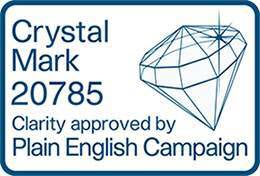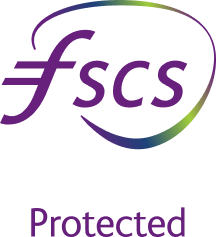Current Account
Comes with a £500 overdraft and no monthly account fee.
What you get from us
- No monthly fee with this account - you won't be charged for opening or using it. Charges for some other services apply, such as debit. interest which is applicable to any overdraft. Read information on account charges (PDF).
- Available as a joint account, everything from our sole account, but for two - more about joint accounts.
- Receive a £500 overdraft with this account (overdraft eligibility criteria and checks apply) - please check your eligibility first.
- We’ll help limit the amount of debit interest charged on arranged or unarranged overdrafts with a monthly cap and text alerts - more about how we limit overdraft charges.
- An ethical choice - why choose smile?
Please note: if you're not eligible for the £500 overdraft, you'll be unable to open this account. Before applying, check if you are likely to get accepted for an overdraft using our eligibility checker.
Check your eligibility for an overdraft
You can check if you are likely to get accepted for an overdraft, even before applying, using our eligibility checker.
Make sure you've read our overdraft information
You should read and fully understand how our overdrafts work.
Calculate how much an overdraft will cost when you use it
Calculate the cost of an overdraft based on when you might use it with our overdraft calculator.
Remember, overdrafts are intended for short-term borrowing only
Overdrafts are intended for short term borrowing and are not suitable for long term borrowing. If you use any type of overdraft, such as arranged or unarranged, you'll pay debit interest. If you use an unarranged overdraft, this may have a negative impact on your credit file.
Why choose smile?
At smile, we do more than just offer accessible, digital banking services. We care about making an impact on the world, and putting that passion into action.
That’s why we source 100% of our electricity from renewable sources and won’t provide our banking services to businesses that are involved in the extraction or production of fossil fuels.
We also support the Centrepoint Helpline, which provides advice to homeless young people, campaign with Refuge to raise awareness of economic abuse, and so much more to support the community.
Criminals recruit people to help them hide their criminal profits
Never open a bank account in your name for someone else to use, or agree to move money through your account for someone else – even if they offer you money in return. If you do this, you could be committing a crime with serious consequences.
To apply, you must:
- Be 18 years of age or older
- Be a UK resident
- Be eligible for the £500 overdraft amount.
Check if you're eligible for our £500 overdraft amount using our eligibility checker.
The main applicant needs to earn a gross annual income of at least £6,000 (gross annual income is the amount you make each year, before tax).
Approval is subject to status and based on a credit check and an assessment of your personal circumstances (a credit check is where we check your credit history, which includes carrying out searches through a Credit Reference Agency).
Why a joint account?
A joint account is a type of bank account where more than one person is responsible for the account and its management. There are generally no restrictions in regards to the relationship between the two people opening a joint bank account, meaning you may share a bank account with a friend, a partner or a spouse for example.
Everyone named on the account has equal access to the joint bank account, but also equal responsibility. This can make it easier to manage shared bills such as rent, mortgage repayments or utility bills, but may also give you less control of the money leaving the account. Keep in mind that both of you may need to meet the provider’s eligibility criteria to be able to open the account. Both of you may also need to pass credit checks.
Joint accounts are not suitable if you need long-term access to help manage someone else’s money. For example, if you need to help an elderly relative look after their finances. You don’t have to open a joint bank account to help someone with their finances. If a bank account needs to be cared for by a person other than the account holder, registering a Power of Attorney or Court of Protection may be an option. All accountholders will need to have full mental capacity to enter into the joint account.
But don't forget:
If you’re looking for an account that offers a straightforward way of sharing money and managing expenses, a joint bank account may be right for you.
You will both have the ability to manage the account, deposit money, set up payments and withdraw cash. With this in mind, it is important to think carefully before entering into a joint account with someone.
There are a few important things to consider before opening a joint bank account. Joining your financial records together may negatively affect your options for opening new accounts and getting credit in the future. This is because if one of you has a poor credit score it may have a negative impact on the other.
Opening a joint bank account often involves consent, allowing both of you to instruct on the account. This means that either of you may be able to apply for additional services and facilities, such as an overdraft, without obtaining additional consent from the other person.
It is important for you both to monitor the account closely as you might not always know of the other account holder’s spending. This could result in missed payments or the account going overdrawn. If this happens, both account holders will be equally liable for the whole debt, and it can affect both parties’ credit score.
A joint bank account can also affect the privacy of your spending habits, as bank statements for that account may be visible to both account holders.
Either account holder can ask for an increase in borrowing without requiring the consent of the other person. You will still be jointly and fully responsible for any debts on the account even if you haven’t individually requested the borrowing or completed the transactions that have caused the overdrawn balance.
As each accountholder is jointly and fully responsible for any overdraft on the account, this means that if you join an account with an existing overdrawn balance, you will become responsible for the amount owed. It is important to make sure you are aware of any overdrawn balance and available overdraft limit before you agree to be added onto an account. You should also ensure you understand any charges applicable when borrowing.
If you are joining an account you have the right to cancel within 14 days of receiving confirmation that you have been added to the account. We will remove you from the account and you will only be required to pay for services that you have already used by the time you cancel. Please be aware that if there has been any increasing borrowing on the account during this period, you will be jointly and fully responsible for this.
Switching
We'll make sure switching your current account to us is completely pain free.
That’s why, when you have your new current account, we’ll get in contact and ask if you’re interested in switching. Then, if you want to fully switch your account to us, we’ll sort it all out for you. This is covered under the Current Account Switch Guarantee.
Payments are transferred automatically
All your Direct Debits, standing orders and bill payments will be automatically transferred.
Payments are redirected
Any payments made to or from your old account will be redirected to your new account.
We’ll cover any financial loss under the Current Account Switch Guarantee
If anything goes wrong, we guarantee to sort it out for you and repay any interest (paid or lost) and charges you might incur. This is covered under the Current Account Switch Guarantee.
Switching with an overdraft or overdrawn balances
If an overdraft forms part of your decision to switch your account to us, please wait for confirmation that this is in place at the level required before you proceed with a switch to us (as approval for the overdraft is based on a credit check and assessment of your personal circumstances).
You can still switch your account if you're overdrawn, but overdrawn balances are not transferred as part of a switch.
You have the option to pay off any overdrawn balance including any fees or charges on your old bank by using available funds with us or an arranged overdraft. (Your old bank will be able to advise of the best way to pay off any overdrawn balance with them).
7 working days to switch
It normally takes just 7 working days to complete the switch over. During this period, you'll be able to use your new account as you would normally.
The Current Account Switch Guarantee only applies if your old account is closed as part of the switch
If you choose a partial switch, not a full switch, we won’t cover you for any potential financial loss.
If you keep your old account open we won’t cover the costs of any problems like missed payments.
There's other stuff you may want to do
- Tell your friends, family and anyone else who needs to know, that you've changed your account details.
- Change your bank details on retail websites.
Current Account Switch Guarantee
We have designed the Current Account Switch Service to let you switch your current account from one bank or building society to another in a simple, reliable and stress-free way. It will only take seven working days. As your new current-account provider we offer the following guarantee.
- The service is free to use and you can choose and agree your switch date with us.
- We will take care of moving all your payments going out (for example, your Direct Debits and standing orders) and those coming in (for example, your salary).
- If you have money in your old account, we will transfer it to your new account on your switch date.
- We will arrange for payments accidentally made to your old account to be automatically redirected to your new account. We will also contact the sender and give them your new account details.
- If there are any issues in making the switch, we will contact you before your switch date.
- If anything goes wrong with the switch, as soon as we are told, we will refund any interest (paid or lost) and charges made on either your old or new current accounts as a result of this failure.

Overdrafts
How our overdrafts work
Overdraft are intended for short term borrowing and not suitable for long term borrowing.
An arranged overdraft is a set amount you've agreed with us in advance. You will be charged debit interest at an annual interest rate of 35.9% variable for going into an arranged overdraft.
If you go over your arranged overdraft
You'll go into an unarranged overdraft if you go over your arranged limit or your account balance falls below £0 without an arranged overdraft in place.
Your payments might be refused if you try to go over your overdraft limit or you try to go overdrawn without an arranged overdraft.
How overdrafts affect your credit reference file
Any type of borrowing shows on your credit file. However an unarranged overdraft shows as arrears which can negatively impact your credit file and may make it harder for you to obtain credit in the future.
Charges
You will be charged debit interest for going into an arranged and/or unarranged overdraft at an annual interest rate of 35.9% variable.
How you can manage your overdraft
Change your overdraft limit
You can request to change or remove your overdraft limit at any time by contacting us. You must make regular payments into your account to reduce the amount you owe.
Text alerts when you go into your overdraft
To help manage your money and avoid/minimise debit interest you might pay, we send overdraft text alerts if you go into or you're about to go into an arranged or unarranged overdraft. We will also send alerts if you have payments due that may not be paid.
As long as we have your mobile number, you'll be automatically opted in for overdraft text alerts. You can opt out of arranged and/or unarranged overdraft alerts at any time by contacting us.
To apply for an overdraft you need to be:
- 18 or over
- A UK resident
If you wish to switch an account to us and an overdraft forms part of your decision to do so, please wait for confirmation of your overdraft before making an application to switch.
Approval is based on a credit check, an assessment of your personal circumstances and is subject to status
Representative example for our overdraft
£500 credit limit
35.9% annual interest rate variable
35.9% representative APR variable
Duration for 1 year
Total amount payable is £679.50 which includes the £500 overdraft and £179.50 interest.
How does our overdraft compare?
The representative APR provided can enable you to compare the costs across different products and providers.
How much does my overdraft cost in pounds and pence?
As an example, the interest cost of borrowing £500 is:
7 days - £2.98
30 days - £12.76
60 days - £25.66
This is based on borrowing £500 on the first day of our charging period and assumes this overdrawn balance remains until it is repaid at the end of 7, 30 or 60 days.
You can use our calculator to work out how much your anticipated arranged overdraft borrowing would cost over different periods of time.
Charges and fees
Account fees
You don't have to pay a monthly fee for having this account.
Overdraft charges
You will be charged debit interest for entering into an arranged and/or unarranged overdraft at an annual interest rate of 35.9% variable.
Other charges
There are some other things we charge for that you can find more information on here.
Foreign transfer fees
Currency conversion charge
A currency conversion charge is applied to any payment made for cash goods, or services using your debit card in a currency other than sterling. The conversion charge will be:
2.75% of the value of the transaction
Sending money outside the UK
Swift
Transfers in sterling or foreign currency to almost anywhere in the world within one to four working days. You will be charged:
0.25% of the value of the transaction (minimum £13, maximum £35 - plus postage, transmission and agent’s charges, where applicable)
Structured USD payments
Low cost way of sending US Dollars to the USA which will take up to five working days. You will be charged:
£8
Single Euro Payment Area (SEPA) payments
Transfer euros to all EU Member States, as well as Iceland, Liechtenstein, Norway, Monaco and Switzerland. Funds should be received by close of business on the next working day and both the remitter and beneficiary have to have an account within the SEPA region. You will be charged:
£0
Real Time Euro Payments (TARGET)
This is a method of sending money outside the UK as euros. This payment will normally be received on the same day if we receive your instructions before 2pm, but can take one to three working days if there are problems from the recipient’s side. Fax confirmation of instructions required if transfer is over £10,000 in value. You will be charged:
£25 (plus postage, transmission and agent’s charges, where applicable)
Enquiries, amendments and cancellations
A fee will be applied if you make an enquiry regarding a payment you have made outside the UK or request to amend or cancel the payment. These fees are also payable for our handling of enquiries from overseas banks concerning your payment instructions. However, where this investigation has resulted from an error by us, or one of our agents, the fee will be waived.
£20 (plus postage, transmission and agent’s charges, where applicable)
Receiving money from outside the UK - in sterling or foreign currency
If the payment is equivalent to £100 or less.
Free
If the payment is over the equivalent of £100 and received in either euro or Swedish Krona currency.
Free
Payments over the equivalent of £100 received in a currency other than euro or Swedish Krona. You will not be charged where the charges are for the remitter's account.
£6 (plus postage, transmission and agent’s charges, where applicable)
Where the charges are for the remitter’s account.
Free
Overseas cheques
Cheques issued
If you write a cheque which requires a currency conversion, we will apply a fee for the processing work we undertake.
£10
Cheques returned unpaid
£10
Electronic payments
Transfers by CHAPS
CHAPS is a same-day sterling transfer service (though instructions need to be received by 4.30pm on a working day).
The charge for using this service is
£25
Faster payments up to £100,000
The Faster Payments Service allows you transfer up to £100,000 to other banks. Payments should normally reach the payee's account immediately.
Once you have made the payment, you can check to see how long it'll take to arrive with the other bank. Simply log into Online Banking, click on the 'View Account' box and then 'Planned payments'. After that, just click on the 'View Faster Payments status' link and you'll see your most recent payments and the timescale for each of these. Please note - Faster Payment transfers will only show on this screen for seven days.
Using this service is
Free
Other services
Cash fee
We will charge you a cash fee if you withdraw cash over the counter at a branch of any other bank in the United Kingdom which is authorised by Visa.
2% of the value of the transaction, minimum of £2
Subject access request
Under the Data Protection Act you are entitled to a copy of the personal information we hold about you.
Free
Status enquiry
A request made to a bank asking if you're likely to be able to pay back a loan, credit or meet regular payments such as rent.
£10
Stopped cheques
When you instruct us that a cheque you have issued should not be paid.
£10
Copy statement (per statement)
You will be charged £2.50 each for the first 4 paper statements you order, or a flat rate of £10 if you order 4 or more at a time per account.
Copy cheque
This is a copy of a cheque that has already been debited from your account.
£5 (per cheque)
Banker's cheque
To assure payment when buying goods such as a car, by cheque.
£10
Statement of Fees
A Statement of Fees will be sent to you at least once every 12 months. It’s an overview of all the fees and charges applied to your current account within the time period shown on the statement. We will also include any debit or credit interest and refunds where applicable.
It will be sent to you by post, even if you have opted in to paperless statements. You won’t be able to see this when you are logged into online banking.
How we limit overdraft charges
Help to limit overdraft charges
We know that it's hard to keep track of what you've spent sometimes. You may accidentally go into your overdraft, or past your arranged limit. There are two ways we help limit the charges for our overdraft customers:
£60 monthly cap
We have a £60 cap on interest for any type of overdraft (arranged or unarranged) in one charging period. This means the maximum you will ever pay for using an overdraft per charging period is £60.
The monthly cap refers to the charges applied in a charging period not a calendar month. Please refer to the Account Charges Leaflet (PDF) for details of the charging periods.
Below is a standard definition to allow you to compare unarranged overdraft charges across different providers, but in practice we don't actually charge fees for allowing or refusing a payment where you have a lack of funds.
- Each current account will set a monthly maximum charge for:
a. going overdrawn when you have not arranged an overdraft; or
b. going over/past your arranged overdraft limit (if you have one). - This cap covers any:
a. interest and fees for going over/past your arranged overdraft limit;
b. fees for each payment your bank allows despite lack of funds; and
c. fees for each payment your bank refuses due to lack of funds.
Text alerts when you go into your overdraft
To help you manage your money and limit any debit interest we send overdraft text alerts.
- These alerts will notify you either before you go into, or when you've entered into an arranged or unarranged overdraft
- We'll also send an alert if you don't have enough money in your account to cover any payments coming out that day.
As long as we have your mobile number, you'll be automatically opted in for overdraft text alerts. You can opt out of arranged and/or unarranged overdraft alerts at any time by contacting us.
Important documents
Please note: We're making changes to our terms and conditions. You'll find a summary of what's changing in the updated PDF below. These changes will take effect from 4 June 2025.
Terms and conditions - including summary of changes (PDF)
Our lending commitments and what we ask of you (PDF)
Not the account for you?
Check out the range of current accounts on The Co-operative Bank website.
Current Account
Our standard current account.
A standard no-fee current account with access to some exclusive savings accounts, and the option to apply for an overdraft, subject to status. Manage your money in the usual ways including online banking and our mobile app.
Cashminder
A basic bank account with a debit card but no overdraft, for new customers who may not qualify for other kinds of account.
Everyday Extra
A packaged account for people who want extra. Get all the features of our standard Current Account, plus worldwide travel insurance, UK & European breakdown cover and mobile phone insurance. Exclusions and limitations apply.
Our service quality information
The Financial Conduct Authority requires us to publish information about our personal current accounts. View our personal current account service quality information.
Existing applications
You can track where your application is up to and find more information about switching from one bank to another on our applications page.
-
Protecting your access to cash
We know many people rely on cash to get things done. And new rules from the Financial Conduct Authority will help protect your access to it from 18 September 2024.
-
Changes to scam reimbursements
There is now more protection for victims of certain types of scams. Read more about the changes to scam reimbursements
Protecting your money
Your eligible deposits with The Co-operative Bank are protected up to a total of £85,000 by the Financial Services Compensation Scheme, the UK’s deposit guarantee scheme. This limit is applied to the total of any deposits you have with The Co-operative Bank and smile. Any total deposits you hold above the limit between these brands are unlikely to be covered.
Please read further information on the FSCS scheme here or visit their website




